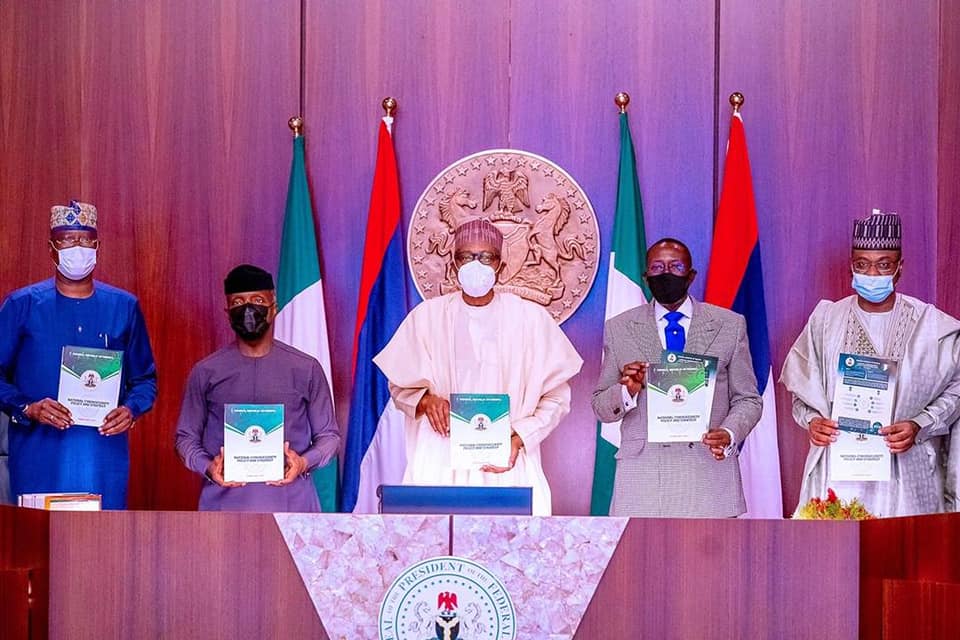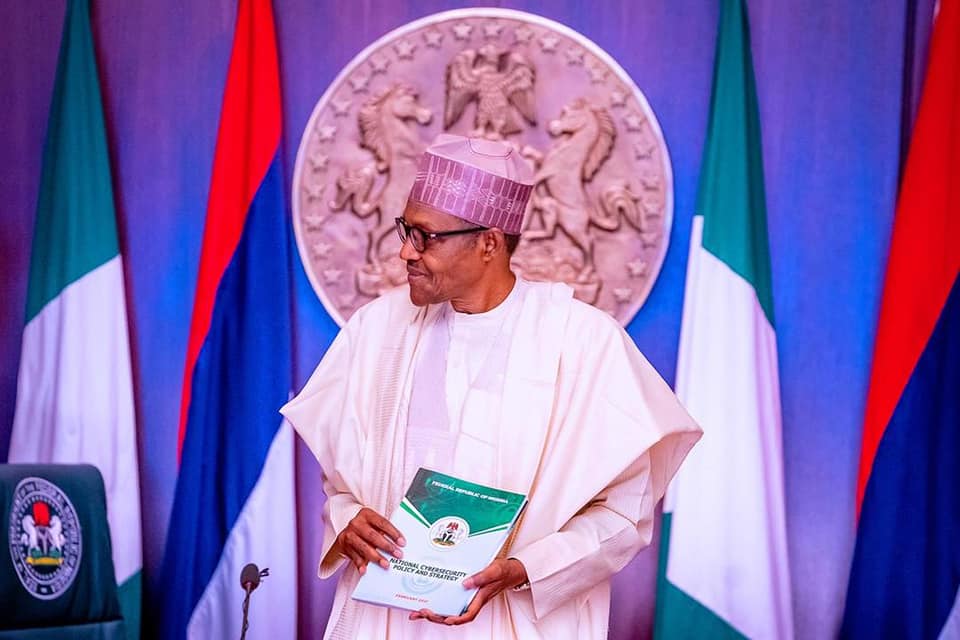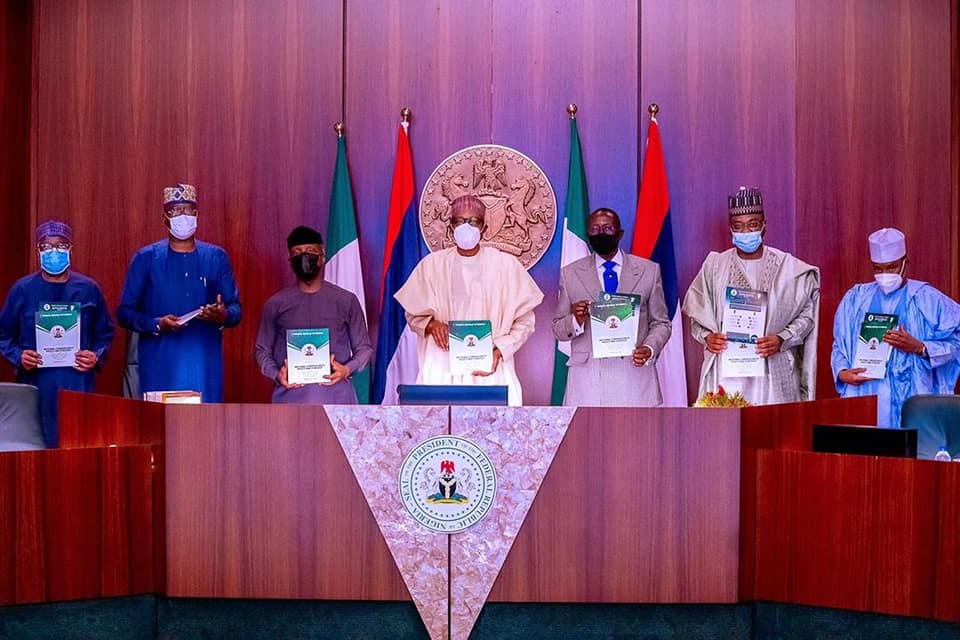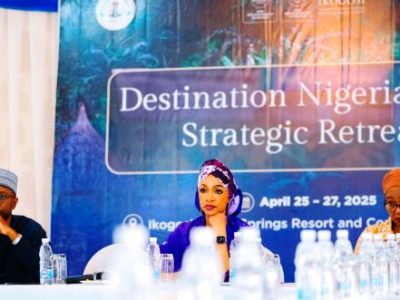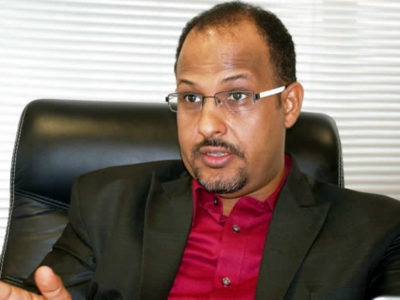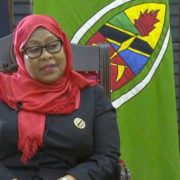President Muhammadu Buhari this week at the State House, Abuja, launched the National Cybersecurity Policy and Strategy (NCPS) 2021, where he directed a reworking of the country’s engagement of cyber security to lay emphasis on exploring the internet for economic growth opportunities and mitigation of crime.
His words: “I urge the National Security Adviser to continue to coordinate the efforts of all stakeholders to ensure that our Internet and cyberspace are used for the enhancement of national security and economic progression.
“I am confident that, together, we can pave the way for the creation of new opportunities to usher Nigeria into a bright future driven by a prosperous cyberspace and digital economy.’’
The Nigerian government was not unmindful of global trends in cyberspace and the necessity to utilise digital resource for both economic and security purposes, said the president; adding that government had proactively, over the past couple of years, initiated steps to ensure progressive use of the cyberspace.
“In 2014, the maiden National Cybersecurity Policy and Strategy was developed to provide the necessary roadmap for the realisation of our national cybersecurity programme. This national effort paved way for Nigeria to reach numerous cybersecurity milestones over the past six years.
“Therefore, in order to build on this achievement and reposition ourselves for enhanced engagement in cyberspace, it became expedient to review the National Cybersecurity Policy and Strategy 2014 and develop a comprehensive National Cybersecurity Policy and Strategy 2021 for the common good of our country,’’ said President Buhari at the event with Vice President Yemi Osinbajo and Minister of Communications and Digital Economy, Dr Isa Ali Ibrahim Pantami alongside other top government functionaries in attendance.
According to him the new document “will also provide the framework that would enable us to harness the efforts of our private sector, academia and industry towards progressive economic and national development.
“To this end, the document will provide the platform for technical education, digital skills acquisition and indigenous technology production, thereby creating job opportunities for our youth and supporting our resolve to alleviate poverty and boost our economy.’’
Government committed to improving digital infrastructures
He said as part of its commitment to improving digital infrastructures including deepening internet penetration to enhance citizens’ living standard, government has also launched the National Broadband Plan 2020 – 2025 in March 2020; National Digital Economy Policy and Strategy 2020 – 2030; National Identity Programme, Treasury Single Account and Bank Verification Number schemes – all designed to improve Nigerians digital quality of living.
“All these initiatives serve as enablers for tackling many of the economic and security challenges facing our country while also providing us with the platform to improve accountability and transparency in our unwavering resolve to tackle corruption.
Government responding to technology drawbacks
Positive technology adoption has not been without its drawbacks for which government has not shied from resolving, the president stated.
His words: “However, like many other countries across the globe, the growth and development of the internet is accompanied by significant problems. We are witnessing a rise in threats posed by cyber-criminals, online financial fraudsters and cyber terrorists who use the internet to cause apprehension.’’
“It is almost impossible to overstate the challenges. Some global events such as the rapid emergence of new technologies, the outbreak of the COVID-19 pandemic and the advent of 5G technology, have further widened the scope and diversification of these cyber threats.
“In October 2020, we all witnessed an escalation in the use of the social media for dissemination of subversive messages and incitement of violence which played a part in heightening tensions, causing unrest and spurring widespread acts of looting and destruction across the country.’’
But the president assured that government remains alive to its responsibility to tame drawbacks resulting from technology usage. In agreement with the president’s assurance, the National Security Adviser, Maj. Gen. Babagana Monguno (rtd), remarked that many banking, communication and military platforms had come under increasing cyber attacks with personal information easily distorted and exploited all of which has made it exigent to review the NCPS 2014 in order to be more strategic in taming the “suffocating presence and unpredictable threats’’ online crimes.
He said the COVID-19 lockdown around the world led to a surge in the use of the internet with an attendant increase in the waves of online crimes, irregular migration and threats to border security all of which are adequately captured in the new NCPS.


